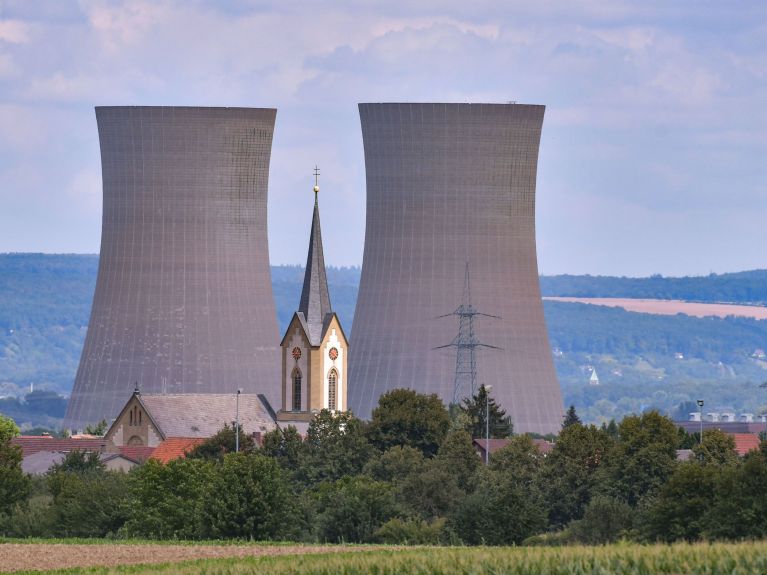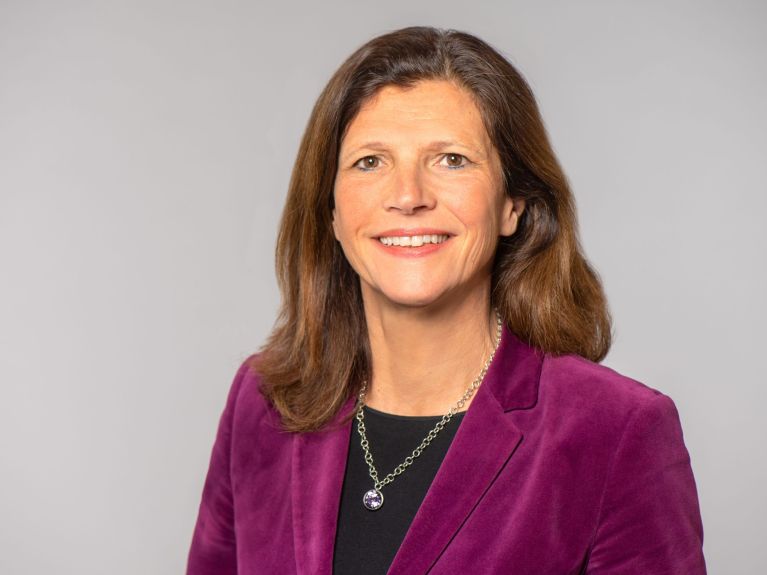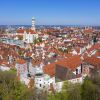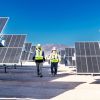Do we need nuclear power for a successful energy transition?
The experts Jeanne Rubner and Claudia Kemfert explain their views of the role that nuclear power should play in climate change mitigation.

The German government believes phasing out nuclear power is the right path for Germany. Nonetheless, there are some who see nuclear power as offering great potential for protecting the climate. As representatives of the two sides to this controversial debate, the experts Jeanne Rubner and Claudia Kemfert were asked the following question:
Do we need nuclear power for a successful energy transition?
“Nuclear power is climate-friendly, safe and profitable”
The pros are argued by Professor Jeanne Rubner, Vice President Global Communication and Public Engagement at the Technical University of Munich (TUM). The science journalist, who has a PhD in physics, also has a teaching position at the Munich School of Politics and Public Policy.
“I’ll look it up on ChatGPT,” one of my students said to me recently. My generation googles things, while our children are already using AI. What they often forget is that querying ChatGPT or any other large language model consumes around ten times more energy than asking a conventional search engine. Google is therefore planning to use small modular nuclear reactors to cover the growing electricity demand for AI from 2030. Microsoft is also looking for ways to power its data centres with nuclear power.

The electricity needed for AI applications is gradually proving too much for us to handle. This, combined with the phase-out of fossil energies that we need to pursue in view of global warming, is seeing many industrialised countries rushing headlong towards a massive energy shortage. We simply cannot roll out renewable energy sources fast enough at present. Wind turbines and solar panels require space, not to mention the consent of local residents. Planners are also finding it impossible to provide the necessary transmission grids and storage facilities.
For ecological and economic reasons, it would have been more sensible to leave the existing nuclear power plants online for longer in order to enable us to complete the fossil phase-out. Even though we still have no repository in Germany for highly radioactive waste. We will need the repository in any case, and we would certainly have been able to handle the additional waste that would have been generated by extending the lifetimes of the power plants. Instead, without really needing to, Germany shut down its nuclear plants and spent a fortune on subsidising renewables. The consequences are high energy costs coupled with an abysmal carbon footprint.
Should the existing power plants be ramped up again? Yes, assuming this can be done safely and economically, and so long as it will have a sufficiently positive impact on the carbon footprint. These three conditions have been met by existing nuclear power plants - they have proven that they can supply climate-friendly electricity safely and profitably.
The Three Mile Island nuclear facility in the US state of Pennsylvania will serve as a test case. Microsoft is planning to recommission the Unit 1 reactor, which was not affected by the 1979 nuclear accident and was shut down five years ago, and use the electricity to power its data centres. The owner has already announced that the reactor will go back into operation - a first for the US. If the authorities approve Three Mile Island 2.0, we will discover how high the costs are of recommissioning a nuclear facility. The small modular reactors that Google plans to use to cover its electricity needs also have to prove themselves in practice - and indeed still have to be approved in the first place.
Yet time is running out. If we do not tap into new, climate-friendly electricity sources in the near future, the Earth will relentlessly continue to warm up. The consequences are already visible today, and can in some cases prove fatal, as we have seen from the catastrophic flooding that hit Spain’s Valencia region.”
“Nuclear power is too expensive, too slow and too dangerous”
The cons are put by Professor Claudia Kemfert, head of the Energy, Transportation, Environment department at the German Institute for Economic Research (DIW Berlin) and professor of energy economics and energy policy at the Leuphana University Lüneburg.
“The energy transition will only be possible without nuclear power. Studies show that nuclear power is too expensive, too slow and too dangerous, while at the same time blocking the transition to renewable energies. Nuclear power is and remains exorbitantly expensive and unaffordable under market economy conditions. Reactors can only be built if they are subsidised or entirely state-funded (as in China or Russia). Without such subsidies, nuclear power would be far too expensive for households and businesses. The costs of dismantling nuclear reactors also have to be factored into the equation, as do the costs of storing the nuclear waste, for which no solution has yet been found.

Furthermore, nuclear energy is highly risky, as we can see from the fact that it cannot be insured, and can be misused for military purposes. In a nutshell: nuclear energy is a technology of the past, not of the future. Nuclear power plants, when used in combination with renewable energies, are too inflexible and thus hinder the switch to renewables and a genuine energy transition.
Without nuclear power, the supply of electricity in Germany can be safe, affordable and climate-friendly. As gas prices fall, electricity prices will come down too. What is more, the proportion of coal-fired power has declined because it is not worth using at the high EU carbon prices we currently have. Meanwhile, the proportion of renewables has risen considerably in recent years, more than offsetting the gap left by phasing out nuclear power.
The alleged global renaissance of nuclear energy is a myth. Overall, more reactors are being decommissioned than commissioned. Even the supposedly innovative small modular reactors (SMRs) that keep hitting the headlines thanks to various start-ups are little more than “PowerPoint reactors” - this is a technology that is more than 70 years old and to this day has never been implemented. It is a matter of betting on the future. Yet time is running out and we shouldn’t waste any more decades on research that will only tell us what we already knew before: nuclear power has no future.
Why go to so much trouble given that we already have everything we need: renewable energies are significantly cheaper, ready for use, low-risk and climate-friendly. With renewables we can have security of supply, decentralised supply, climate protection and peace. An energy transition without nuclear power is the best peace project we have today.”


